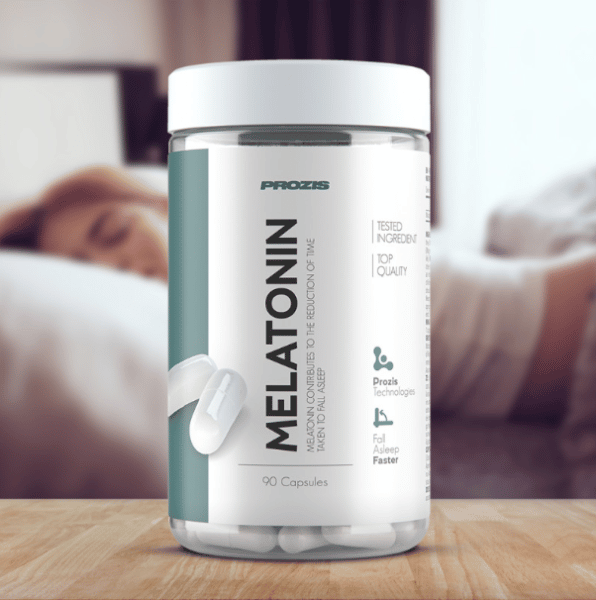You think that muscles are built at the weight room ? This is not entirely true. Of course, training is the basis for weight gain or weight loss. But in reality, it is not at the gym that the muscle building actually takes place. This occurs outside of physical activity, when the muscles are regenerating. This is why it is important to place the muscle recovery at the heart of your training plan.
Muscle recovery, an essential element of performance
During strength training, your muscles undergo a whole bunch of little injuries. It is these micro tears that are at the origin of muscle soreness. After physical effort, your body will naturally seek to repair the damage to your muscle fibres. It is precisely this process which is at the origin of the gain in muscle volume.
In other words, muscle is built when you are not at the gym. So after a workout, it's the recovery times that will allow your muscles to grow and obtain visible and lasting results. In this respect, it is essential to integrate a phase of physical recovery adequate.
This explains why many sports coaches make recovery after exercise one of the most important aspects of their weight training programs. This has many positive effects.
But then, how much rest should you take between weight training sessions? The fitness industry tells us that in order to progress quickly, you need to train 2 hours a day, 7 days a week. This is, of course, completely false.
In such an approach, recovery is often put on the back burner. This is a mistake made by many beginners who want to do well. Weight training is a traumatic sport, both for the muscles and the joints and the nervous system. Rather than spending 2 hours a day in the gym, you should give your body time to recover after each intense effort. This is how you will build muscle effectively.
As you can see, the role of recovery is fundamental. This is why the programs proposed on the site are based on training sessions of about 1 hour. Similarly, each training plan includes 1 or 2 days off complete within a week.
This gives you enough time to let your muscles recover, while optimizing your approach to training to achieve muscle gains consequent.
What to do to recover well and reach your goals?
Sleep well
More than the recovery time between workouts, it's the quality of that time that really matters. If you don't get enough rest during your off days, your recovery will not be optimal.
This is where the sleep comes into play. These days, it can be difficult to get a good night's sleep due to many factors such as stress, work or social life.
However, when you sleep, it is the main moment when your body starts its process of muscle reconstruction through protein synthesis and growth hormone release. Good quality sleep is therefore essential for optimal muscle gains. If you lack sleep, you will lose your ability to build muscle.
Beyond this muscle building, sleep also helps restore organs, replenish immune cells and improve brain function. These aspects will help you maintain a healthy body over the long term.
If you have trouble falling asleep, you can take natural supplements such as melatonin. The melatonin is a hormone naturally produced in the brain. Several studies have shown that taking a 1 milligram dose of melatonin before bedtime helps reduce the time it takes to fall asleep. For those who travel regularly, melatonin is also effective in reducing the effects of jet lag.
Other natural supplements can promote recovery by helping you to relax. It is in particular the case of the Valerian or the L-Tryptophan.
Take care of your diet and hydration
In addition to sleep, what you consume during these rest periods also plays a fundamental role in your ability to recover. As such, nutrition is just as important than physical training.
You need to eat enough to cover your caloric need (unless you are on a dry diet) and base your diet on healthy foods and unprocessed. Establishing a nutritional plan with an accurate calculation of the calories and macronutrients you need is essential to achieving results in bodybuilding.
In addition to the quality of your diet, some food supplements can help strengthen your muscles and tendons during rest periods:
- glutamine, an amino acid that stimulates protein synthesis and muscle growth, and reduces aches and pains ;
- the creatine monohydrateIt is ideal for restoring muscle glycogen after exercise if combined with carbohydrates.
Whether during the effort or after, hydration is finally an important element. Being well hydrated undoubtedly accelerates recovery and relieves the muscular pains inherent in sports.
Practice soft physical activities
During your recovery time, remember to do things you enjoy. If your schedule allows, feel free to walkThis can be done by jogging at a very slow pace, swimming, cycling or playing a low-intensity sport.
Finally, the most important thing is to do activities that you enjoy. Keeping moving, even on your days off, is a great way to activate the blood circulation to optimize your muscle recovery. If you continue to do what makes you happy, while allowing your body to recover, you will create the ideal conditions for muscle gain and fat loss.
Avoiding overtraining
During a weight training session, many hormones are naturally released by the body. This is particularly true of cortisol (the stress hormone), growth hormone or testosterone. This is to cope with the stresses imposed by intense training.
After one hour of sport, cortisol levels increase, while testosterone and growth hormone levels decrease. This has a counterproductive effect on the muscle gain.
The state of overtraining has a negative impact on your sports performance, and more generally on your daily life. Of course, the overtraining does not happen in a snap of the fingers. It is the result of many factors such as extreme exertion, poor nutrition and lack of sleep. It occurs in the vast majority of cases in high level athletes.
The real overtraining leads to a hormonal disruption of the body. It can take several months for the body to fully recover. This will affect your performance, limit your muscle gains and potentially cause injury.
The first signs of overtraining are:
- extreme generalized fatigue,
- a loss of motivation,
- difficulty sleeping,
- the absence of menstruation (amenorrhea) in women,
- the onset of diseases and infections due to a weakened immune system.
Preventing injuries
In weight training, the injury is one of the worst things that can happen. Without training, your hard-won muscle gains will melt away like snow in the sun.
This is why it is essential to take a break to allow the body to recover. If you put unnecessary strain on your muscles and tendons, they will eventually give way.
If you overtrain or try to shorten recovery time, your muscles will not be ready for the effort and you will increase the risk of injury. Of course, this does not mean that you should train without intensity with low loads. It's just a matter of finding the right balance and listening to your body.
On days when you feel tired, you can reduce the length of your session and use lighter weights.
Your weight training sessions should be progressive and regular. They should not exceed 60 to 90 minutes of actual work, warming up included. Space the workouts of the same muscle group at least 1 day apart to avoid aggravating fiber damage.
Every 3 months or so, take a week to recover and use this time to do other activities. Many athletes notice an increase in their performance when they resume training.
All of this is essential for your muscles and joints to stay healthy. If your goal is to gain muscle and strength over time, keep in mind that your body should always be your priority.
Conclusion
Make no mistake about it. Muscle recovery is one of the most important aspects of your weight training or fitness program. Without it, it is impossible to progress! It is during this time that you will be able to build muscle, improve your strength and reach your goals.
To complement this article, here is a video in which I talk about muscle recovery.
Other articles to read :
The massage roller as a complement to weight training













5 Comments
7 days out of 7 IS strictly useless... But some people remain narrow-minded 🙃 . Thanks for the reminder 😀
Rest, sleep as important as food and training
A common sense article julien
as a good professional you are, you always offer us more and it's all to your credit
Very well written article.
And yes, people think it's the bodybuilding that does it all, but it's really a combination of several equally important parameters. It's not enough to just push
Thank you for this article on muscle recovery. It is clear! Your a master Julien